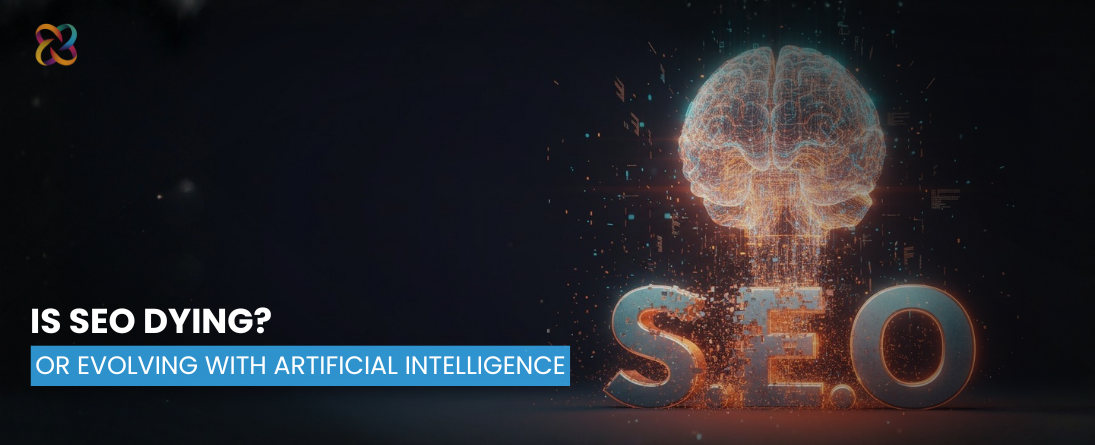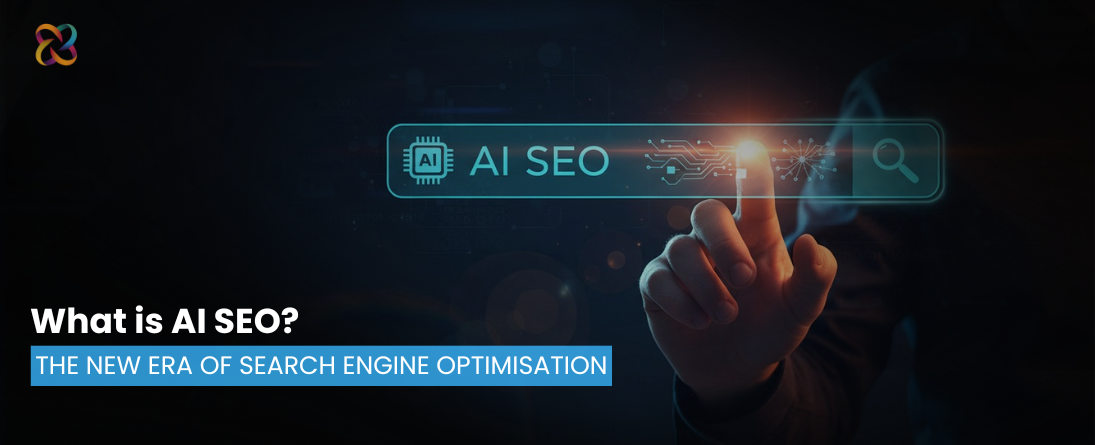Will SEO Be Replaced by AI? Understanding the Future of Search Optimization
In 2025, over 86% of SEO professionals use AI-powered tools, and 67% report better results from automation, while Google’s AI Overviews have reduced organic click-through rates by up to 40%. These statistics marks a turning point for digital marketing, one where artificial intelligence isn’t just assisting SEO but fundamentally redefining it.
The question, “Will SEO be replaced by AI?”, has become one of the most important in the marketing world. AI SEO tools now analyze search intent, create optimized content, and perform technical audits in seconds, tasks that once used to require entire teams. Meanwhile, Google’s evolving algorithms, such as the Search Generative Experience (SGE), continue integrating AI into how information is ranked, summarized, and displayed.
However, SEO remains far from obsolete. While AI can process data, it cannot replicate human insight, brand voice, or strategic judgment the core pillars that make SEO effective. The future of SEO lies in the synergy between human creativity and AI precision. Marketers who understand this balance will not only survive the AI revolution but lead it.
In this comprehensive analysis, Zenspire Media reveals how AI is transforming SEO, where human intelligence still dominates, and how to build an AI SEO strategy for 2026 and beyond.
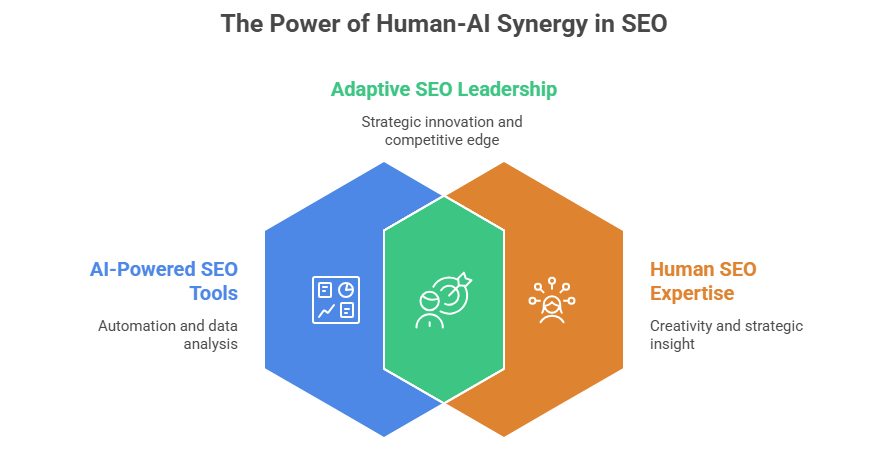
Key Takeaways
- SEO will evolve, not disappear. AI will accelerate technical work, while human creativity ensures strategy and credibility.
- AI SEO tools streamline data-driven tasks like keyword research, content generation, and competitor tracking.
- Human oversight remains essential for brand alignment, ethical accuracy, and user engagement.
- AI and SEO integration requires balancing automation with emotional intelligence and storytelling.
- The future of SEO depends on structured data, E-E-A-T compliance, and adaptive content built for both search engines and AI systems.
- AI SEO strategy will reward brands that combine machine learning insights with authentic digital experience.
- Partnering with hybrid agencies like Zenspire Media helps brands stay competitive in this rapidly shifting ecosystem.
What AI Means for SEO in 2026
Artificial Intelligence is not replacing SEO, it is redefining how optimization works. By 2026, search will be less about keywords and more about meaning, context, and conversation. Google’s Search Generative Experience (SGE), OpenAI’s GPT Search integrations, and platforms like Perplexity AI or Gemini are transforming how users find and trust information.
In this new environment, SEO is no longer limited to ranking links it’s about earning mentions, citations, and visibility within AI-powered summaries and answers. That shift demands a different mindset from marketers and brands.
The Evolution in a Snapshot
| Year | Focus | SEO Transformation |
| 2010–2015 | Keywords & backlinks | Manual optimization & on-page SEO |
| 2016–2021 | User intent & voice search | Semantic SEO & mobile-first indexing |
| 2022–2025 | AI integration & content automation | Machine learning-based search |
| 2026+ | Generative SEO & entity optimization | AI answers replace blue links |
While automation and algorithms evolve, the principles of good SEO remain timeless: credibility, quality, and experience. The future of SEO depends on how businesses align AI precision with human creativity.
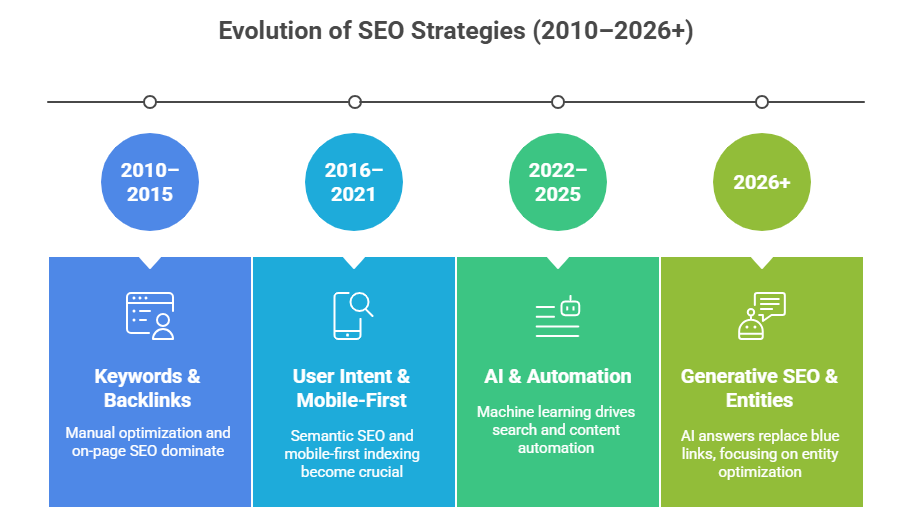
How AI Is Transforming SEO Today
The fusion of AI and SEO has reshaped how websites are discovered, optimized, and ranked. In 2025 alone, over 70% of content audits, keyword clustering, and technical SEO reports were AI-assisted. From predictive analytics to NLP-driven topic models, AI is transforming every layer of SEO.
- AI in Search Algorithms: Google now relies heavily on machine learning models like RankBrain, BERT, and MUM to understand queries based on context, not just syntax. This means SEO professionals must optimize for intent, entities, and semantic meaning, not just keywords.
- AI in Content Creation: Modern AI SEO tools such as SurferSEO, Clearscope, and Jasper assist in creating content that meets NLP standards and real-time keyword density benchmarks. However, human editors remain essential to maintain brand tone, accuracy, and emotional depth.
- AI in User Experience: Search now evaluates interaction metrics, dwell time, click satisfaction, and engagement loops, that AI can measure but not improve without human input. Thus, while AI automates insights, humans drive the emotional engagement that search engines reward.
- AI in Predictive SEO: Tools like MarketMuse and Semrush’s Keyword Forecasting leverage AI to predict ranking potential and search trend shifts. This enables marketers to plan proactively rather than reactively.
AI’s role is therefore clear: it’s a strategic accelerator, not a replacement. The question is not “Will SEO be replaced by AI?” but “How fast will SEO evolve with AI?”
Benefits and Business Impact of AI in SEO
Artificial intelligence gives SEO professionals an edge, speed, scale, and precision. Yet the biggest advantage lies in how it enhances strategic thinking and decision-making.
Key Business Benefits
- Enhanced Efficiency: AI automates time-consuming tasks like crawling reports, backlink audits, and metadata optimization saving 60–70% of manual effort.
- Smarter Content Strategy: AI SEO tools analyze SERPs and competitors instantly, helping content teams identify keyword opportunities and topic gaps.
- Predictive Ranking Insights: AI models forecast potential ranking outcomes based on algorithmic trends, letting businesses adjust campaigns before rankings drop.
- Better UX and Personalization: AI tracks user journeys, session depth, and behavior metrics to recommend design and content improvements that increase dwell time.
- Cost Optimization: Companies save on repetitive labor and reinvest in creative strategy, brand storytelling, and high-level analytics areas AI can’t replicate.
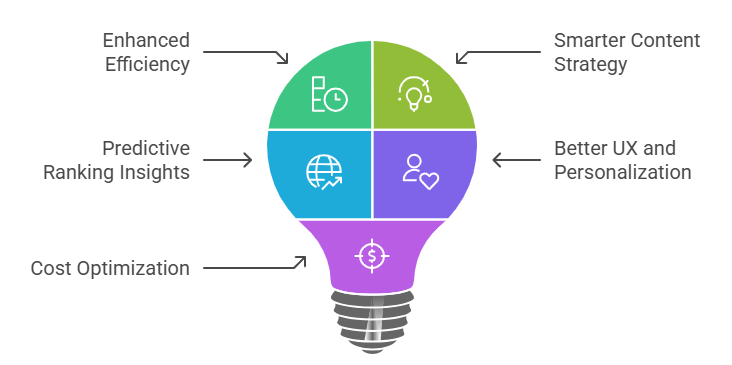
Quantifiable Impact
| Metric | Traditional SEO | AI-Enhanced SEO |
| Keyword research time | 8–10 hours/week | 2–3 hours/week |
| Content optimization speed | Manual | Real-time NLP scoring |
| CTR improvement | +12% | +27% with AI insights |
| ROI tracking accuracy | 60% | 90%+ with automation |
| Cost per lead (avg.) | $150 | $80–$100 |
AI and SEO together amplify not just visibility but value, enabling brands to achieve sustainable, data-driven growth.
Essential AI SEO tools for 2026
To understand Will SEO be replaced by AI, we must recognize how AI SEO tools and automation platforms are reshaping workflows, decision-making, and reporting accuracy. AI now assists every stage of SEO from crawling to forecasting but success still depends on choosing the right tools and measuring the right metrics.
AI SEO Tools by Function
| SEO Function | Recommended AI SEO Tools |
| Keyword Research & Clustering | Ahrefs, Semrush, SurferSEO |
| Content Optimization & Generation | Clearscope, Frase.io, MarketMuse, Jasper |
| Technical SEO Audits | Screaming Frog AI Auditor, Sitebulb, DeepCrawl AI |
| Competitor Analysis & Forecasting | SEOlyzer AI, SE Ranking AI Monitor, SpyFu AI Reports |
| User Experience Analytics | Google Analytics 4 (GA4), Hotjar AI Heatmaps |
| Performance Reporting | Looker Studio, DashThis, DataBox AI |
Each of these platforms supports AI and SEO integration by reducing repetitive tasks and increasing data precision. However, no tool can define strategy or creative differentiation those remain human-led.
Future Trends and 2026 Outlook
The debate over Will SEO be replaced by AI will intensify in 2026, as search shifts from keyword-based ranking to context-driven conversation. Here are the emerging trends shaping the next evolution of search optimization.
- Rise of Generative Engine Optimization (GEO): AI-driven engines like ChatGPT Search, Gemini, and Perplexity will redefine visibility. Instead of listing URLs, they’ll summarize brand information. Businesses must now optimize to be cited in AI-generated answers through structured data, entities, and verified authorship.
- Voice and Conversational Search Domination: Over 60% of global queries will be voice-based by 2026. Optimizing for natural language and long-tail questions will become essential to stay discoverable in AI-assisted ecosystems.
- Predictive SEO and Automated Insights: AI will predict algorithmic fluctuations before they happen. This means real-time SEO adaptation, where content is dynamically optimized for shifts in ranking patterns.
- Integration of AI in Core Web Metrics: Google will increasingly measure AI-readability, visual comprehension, and trust signals within web content. Businesses will need both machine readability and human relatability to maintain ranking resilience.
- Hybrid AI + Human SEO Teams: The future of SEO belongs to hybrid teams. AI will handle scale audits, clustering, reporting while humans steer creativity, branding, and ethical oversight. The winning formula will be: AI for analysis. Humans for authenticity.
The future of SEO will therefore not be man versus machine it will be man enhanced by machine. Together, they’ll shape a search environment that’s smarter, faster, and more human than ever before.

